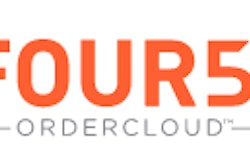
Many clichés are shared about the millennial generation. Some describe them as narcissistic and entitled, while some say the group is civic-minded and idealistic. However, there’s one thing for certain: Millennials are the first digital natives.
As the first generation immersed in a digital world from day one, millennials are revealing the possibilities that come from mixing technology into every aspect of life, from personal to professional. Millennials officially surpassed Generation X in 2015 to become the largest share of the American workforce (Pew Research Center). And by 2025, 75 percent of the workforce will be comprised of millennials (CMO Digital Forum). This means brands need to adopt a digital strategy to remain competitive.
Here are three key things that manufacturers and distributors can learn from these digital natives:
1. Digital Self-Service Is the Future of Commerce
For Gen Xers and baby boomers, calling an airline or visiting a travel agency used to be the only option to book a plane ticket. However, today’s online sites and mobile apps offer better customer experiences that are faster, easier and more convenient. This represents the emergence of digital self-service. Millennials don’t have to rely on an agency or customer service rep to make travel reservations. Instead, they are empowered to take matters into their own hands. This empowerment is being adopted by many industries already, including taxi service (e.g. Lyft and Uber), foodservice (e.g. Bitesquad and Door Dash) and even entertainment (e.g. Netflix, Fandango and HBOGo).
Now, business-to-business (B2B) businesses are racing to get on board to replicate the business-to-consumer (B2C) market’s success. For good reason, too, as 74 percent of B2B buyers are researching at least half of their business purchases online. And they aren’t turning to sales reps until they are more than halfway through their purchasing journey (Forrester). By giving B2B buyers the tools they need to educate themselves on the product or service, and complete purchases, you are empowering them through the entire buying process, just like Uber, Bitesquad and Netflix.
2. Mobile Matters
Mobile commerce, or m-commerce, is becoming extremely powerful, as displayed by the retail industry. In 2015, Internet Retailer reported mobile sales increased by almost 53 percent on Cyber Monday (Internet Retailer).
The B2B world is following suit as 85 percent of B2B buyers want mobile purchasing experiences, up from 69 percent last year (Internet Retailer). With 42 percent of B2B buyers using a mobile device while researching a business purchase, and nearly half of those researchers being millennials, mobile responsiveness is key (Think With Google). In fact, 23.5 percent of manufacturers plan on increasing their investments in their mobile app strategy by 2020 (Manufacturing Commerce & Technology 2020).
Evelyn Fiskaa, director of career development at Dominican College, says, “Millennials don’t mind working at home, or the overlap between work and their personal life.” (USA TODAY) This is driving the evolution of flexible schedules. With more and more employees using mobile and tablets to access their work from outside the office, a strong m-commerce strategy is essential.
3. Personalized Experiences Are Key
Millennials now expect personalized content as B2C sites made it the norm. Nick Jones, EVP of innovation and growth at Leo Burnett, notes, “The new generation of millennials and even younger audiences are getting more familiar with that kind of blended world where there isn’t quite as much of a protection of privacy. Frankly, they’ve grown up with the personalization of content where I’m aware of where you’ve shopped, where you left a [shopping] basket and I’m going to remind you. They see that more as a value than necessarily an intrusion of their privacy.” (AdWeek)
Knowing this, B2B companies can leverage Big Data, e-commerce and m-commerce to provide a personalized experience on any device. Rather than only being able to personalize the experience on a company or department level, it can now be customized to each individual buyer. Personalization will make each buyer’s job easier as they are delivered the exact content and/or products they want, giving them one more reason to continue your business relationship.
Millennials are causing a major shift in the workplace, blurring the once normal nine-to-five working hours to an always-on mindset. They’re pushing other generations, and businesses, to evolve. For B2B businesses, that means providing immediate, data-rich, personalized and mobile experiences.
















